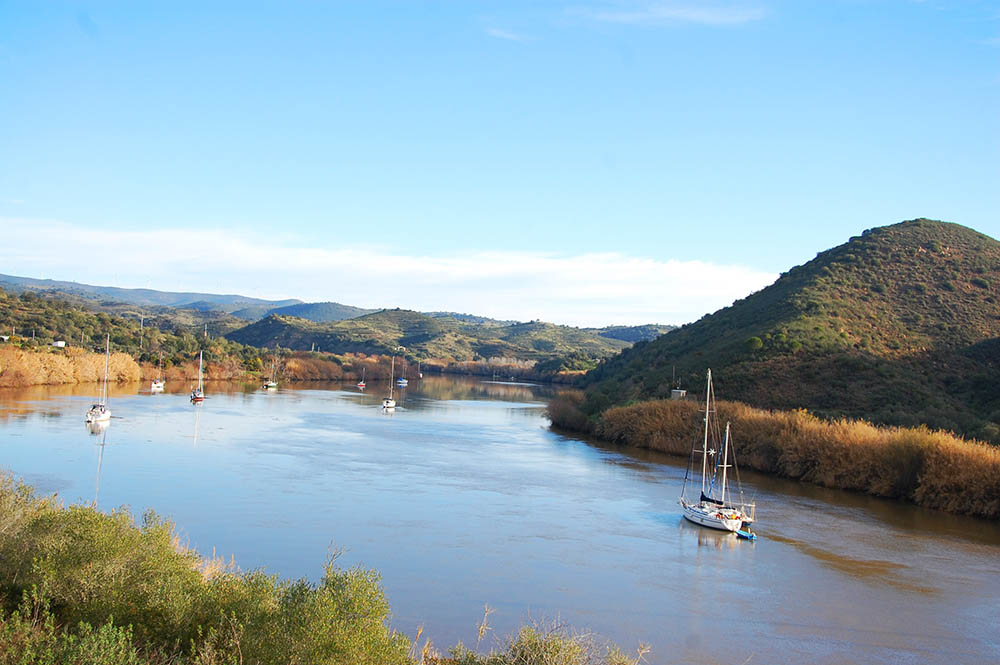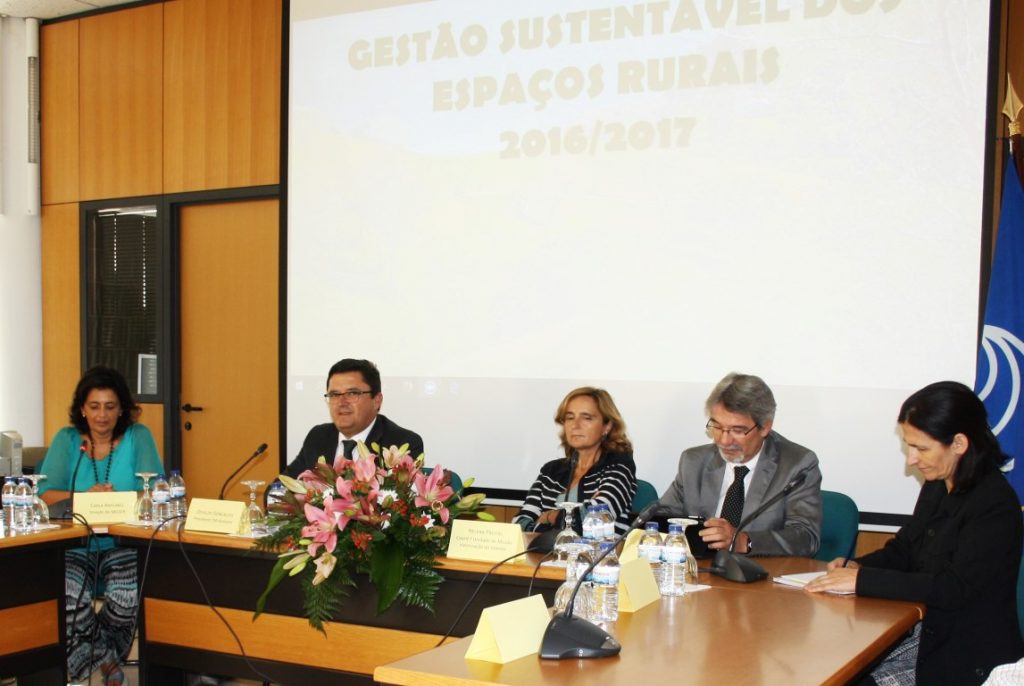 When there are no solutions to combat the desertification of a territory, it is best to take those who can find them there, so that they can get to know the local reality and think of ways to solve specific problems.
When there are no solutions to combat the desertification of a territory, it is best to take those who can find them there, so that they can get to know the local reality and think of ways to solve specific problems.
This is the main idea of the new edition of the Master in Sustainable Management of Rural Spaces that the University of Algarve is already promoting, an innovative initiative that will have a strong e-learning component and in which all fieldwork will be carried out in the municipality. of Alcoutim.
As noted at the official master's launch ceremony, which took place on Friday in Alcoutim, the hope placed in this new approach to desertification, which results from a partnership between UAlg and the Alcouteneja autarchy, is great. And the fact that there was a strong adhesion helps to keep optimism at high levels. There were 20 applications for 20 vacancies and 19 Master's students who started classes (one of the candidates, however, dropped out).
With the new approach to teaching sustainable management of rural spaces idealized by UAlg, it is no longer possible to think about the territory at a distance, which, hopefully, will lead to more adequate solutions.
«We are going to try to make the master's students acquire competences in the different dimensions that allow the sustainable management of rural spaces, namely in terms of biotic, abiotic and cultural resources. The course has a teaching component of one year and one semester to develop a dissertation. In these final works, we will try to apply all case studies to the municipality of Alcoutim and that the union of these contributions results in a new management model for this territory», he explained to Sul Informação Carla Antunes, director of the Masters in Sustainable Management of Rural Spaces.
The Master's will be based at the University of Algarve's Gambelas Campus, at the Faculty of Science and Technology, which promotes it, but students will not necessarily have to go there. "Like e-learning, we are in Faro on our computer and we can have a student in America», he exemplified. In the current edition of the Master's, there are no students from outside the country, but there are Master's students «from all over the Algarve, Alentejo and even Sardoal (Santarém)».

Alcoutim thanks this input of specialist knowledge and hopes it can make a difference. «Nowadays, it is increasingly important to promote knowledge and specific training in areas such as combating desertification. And if this training takes place in a real environment, as will happen here, I think it will increase the possibility of these agents intervening effectively on the serious problems that affect the interior areas», considered the president of the Chamber Osvaldo Gonçalves.
«It is very important to have achieved this partnership with the University of Algarve, a key partner if we want to think about solutions in a responsible way», added the edil alcoutenejo.
For the eventual success of this master's course, the dimension of e-learning, bearing in mind that this methodology allows a much larger number of people to attend this course.
“We wanted to reinforce the component of e-learning, because many of the candidates for master's and doctoral courses are people who are inserted in the labor market. This, of course, poses an added problem for them to complete their training, given the demand for these courses», illustrated the rector of the University of Algarve António Branco.
«The methodology of e-learning used here should be replicated as much as possible within the UAlg, as this would be a way of responding more broadly to the needs of people in the region – and even outside the Algarve – who want to continue studying», he added.
António Branco also highlighted the “strong component of laboratory work in the field”. «A territory was chosen where these issues are evident and where the study of the territory, from an academic point of view, can produce effects and give clues to public policies. The marriage between the course's specialization area and the territory that was chosen for the field work seems to me to be very happy», he concluded.
Candidates for Masters are already learning and working. In about a year and a half, they may be the precursors of structural changes that will allow Alcoutim and, by extension, other territories in the interior, to have new tools to fight desertification and to start looking, without fear, towards interiority.
















Comments